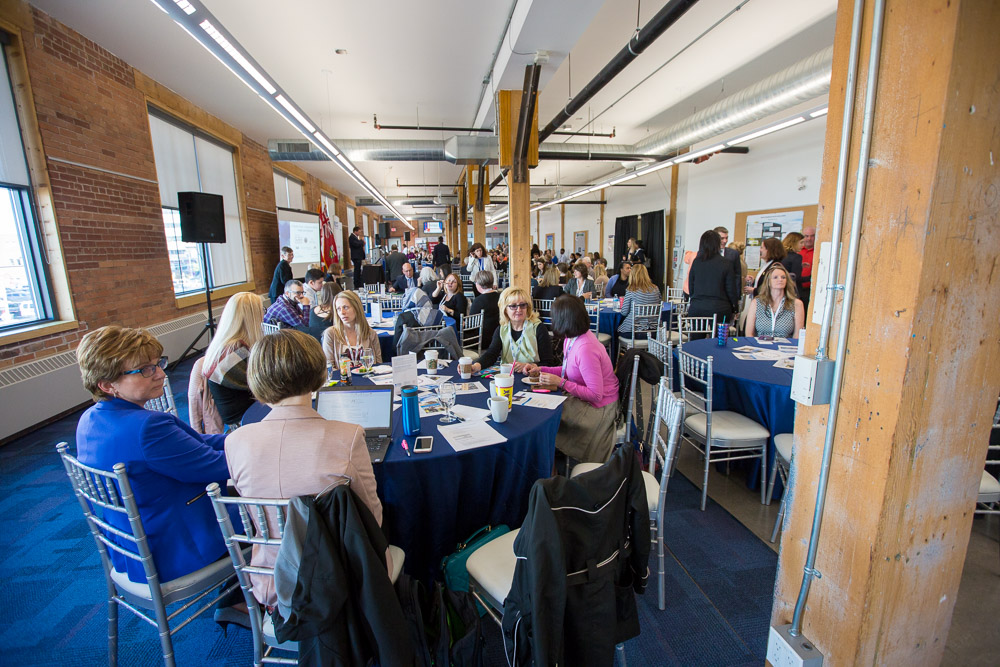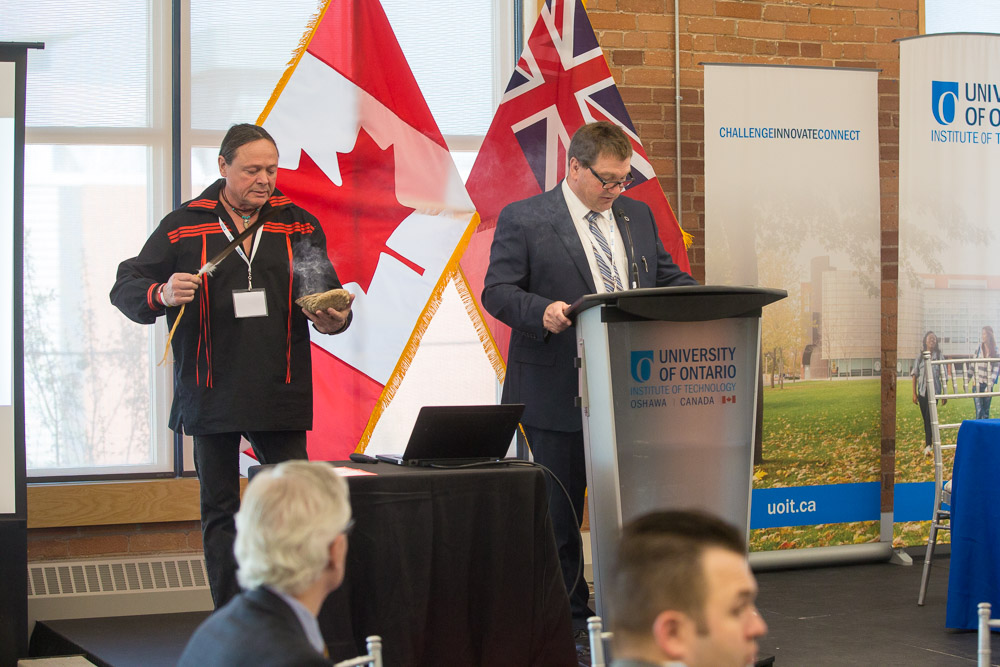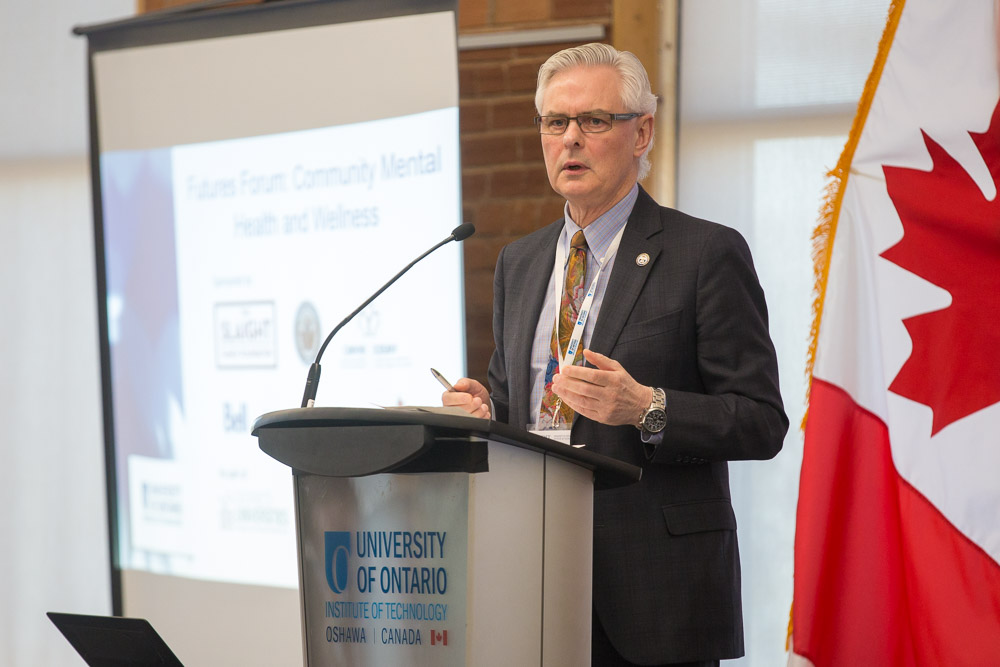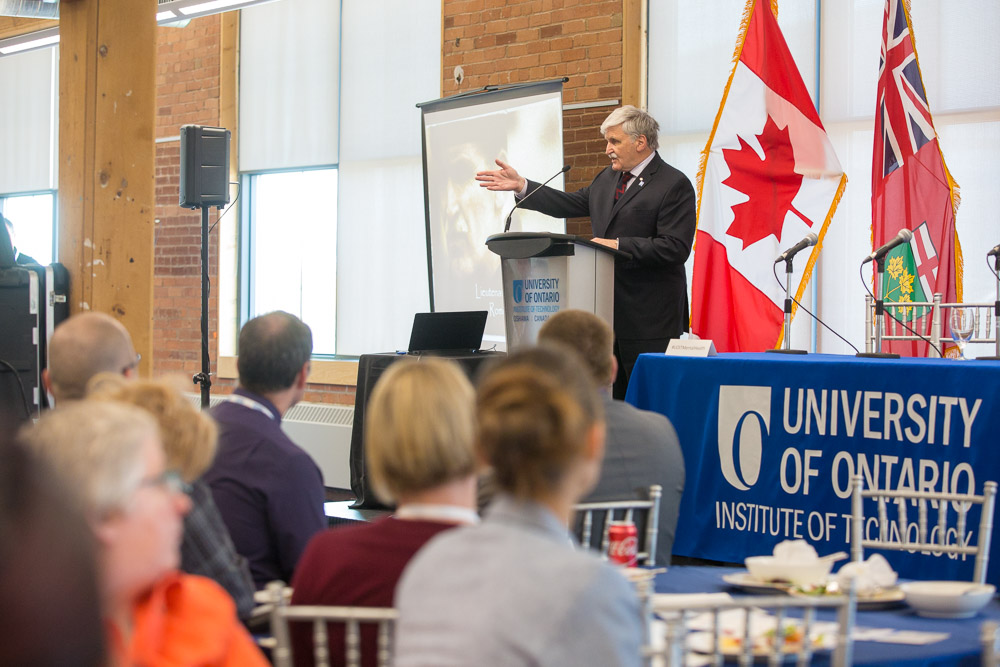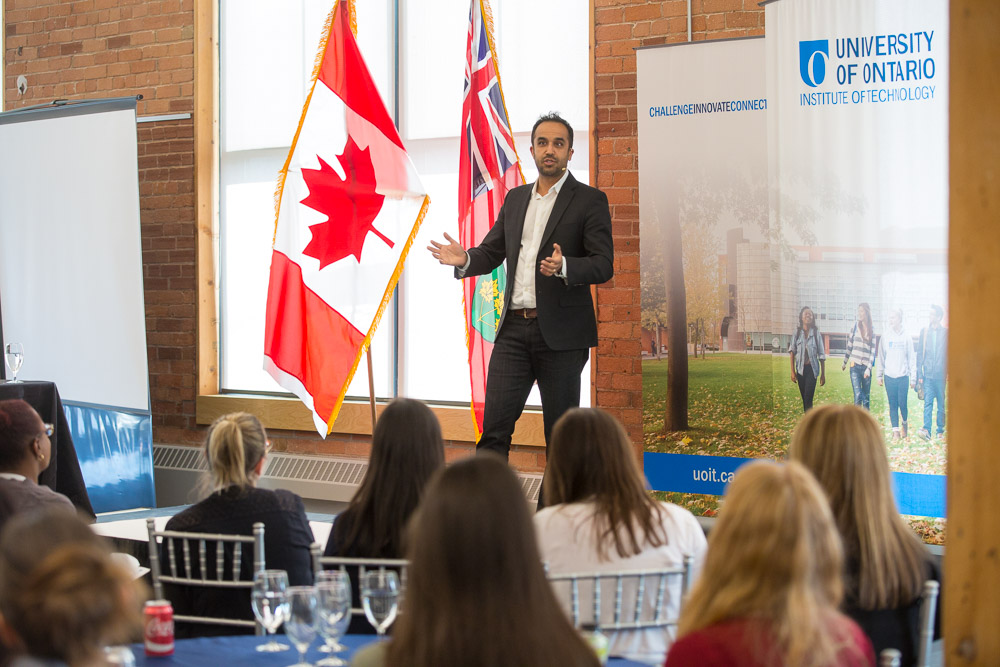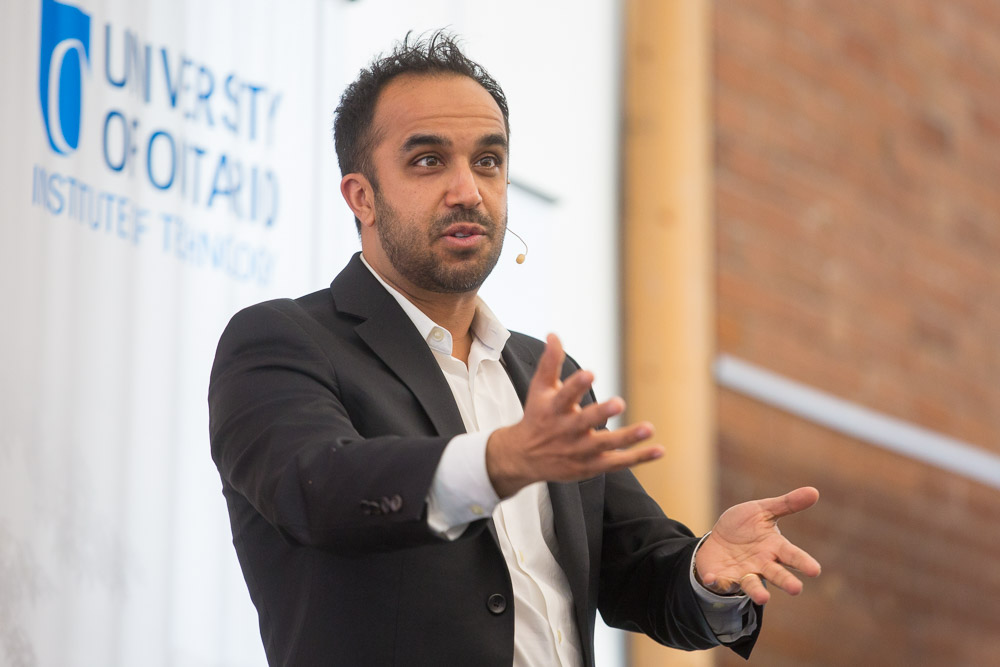Mental health takes centre stage at university’s 2017 Futures Forum
May 19, 2017
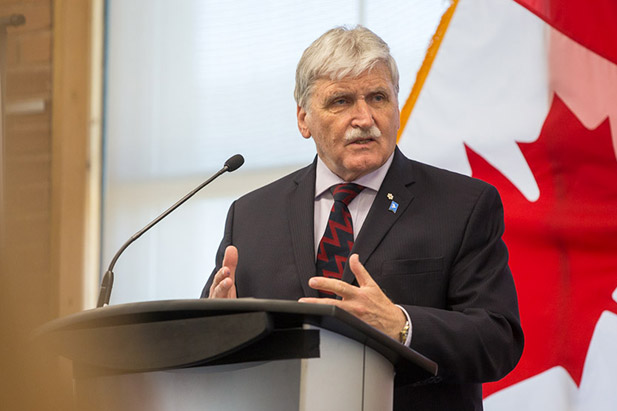
There was a time not so long ago when mental health was a topic people did not openly talk about. Issues like depression, substance abuse, addiction and bipolar disorder are among many historically considered taboo to raise in conversation.
Although there admittedly is a long way to go, cultural awareness about mental health and wellness is increasing in Canada. Educational programs are taking hold. Many workplaces have support services in place. High-profile Canadians with a mental illness are sharing their stories. Their openness is encouraging others to do the same and help everyone realize they are not alone.
With a goal of advancing the conversation even further, the University of Ontario Institute of Technology welcomed mental health experts and researchers May 10 to the Futures Forum on Community Mental Health and Wellness.
In-depth discussions throughout the day focused on four themes:
- Mental health of vulnerable populations.
- Occupational health and well-being.
- Physical activity and healthy communities.
- Health technology and quantifying health.
Powerful perspectives on the contemporary mental health and wellness environment were shared by keynote speakers Lieutenant-General the Honourable Roméo A. Dallaire, and renowned Canadian author Neil Pasricha (The Book of Awesome).
Dallaire spoke candidly about the aftermath of his role as commander of United Nations peacekeeping mission in Rwanda in the mid-1990s. The General provided the UN with information about a planned massacre in the country, but permission to intervene was denied. The ensuing genocide claimed the lives of more than 800,000 civilians over a three-month period.
- Video link to Romeo Dallaire keynote address (video link runs approximately 58 minutes)
Along with a small contingent of Ghanian soldiers and military observers, Dallaire disobeyed the command to withdraw. He remained in Rwanda to fulfil the mission’s moral and ethical obligation to protect those who sought refuge with UN forces. His courage and leadership earned him numerous accolades and international honours. He also authored an award-winning book on the mission (Shake Hands with the Devil)
Dallaire and many of his soldiers have lived with post-traumatic stress disorder since the end of the mission. But he says mental wounds are not observable in the same way as an injured arm or a bleeding leg.
“Where is the medical army surgical hospital (MASH unit) for the brain?” asks Dallaire. “How can psychological injuries be stabilized if you are still living with the conflict? The wounds do not disappear. The memories can be triggered by something as simple as a visit to a grocery store, where a former soldier is reminded of the haunting image of a market in a slaughtered village.”
Dallaire says those who battle mental illness need to avoid isolation. They need to be able to talk to others to prevent stress from building up. Therapy is critical. And if medications are required, patients need to take them.
“Peer support is everything, and sometimes patients just need to be able to talk to another human being,” says Dallaire. “That person doesn’t need to ask a question to the patient. They just need to be someone who will listen and can be trusted. Getting it out in the open prevents a mental injury from getting worse. In fact, it can save someone’s life.”
Dallaire also offered strong words for the university, congratulating it for recognizing how events like the Futures Forum are vital in terms of changing perspectives, building awareness and improving community health.
Among the attendees were representatives of the Canadian Institute for Military and Veteran Health Research (CIMVHR), an organization driving new research on the health and well-being of military personnel, veterans and their families. Ultimately the work and findings of the CIMVHR will benefit first-response organizations across the country.
The closing keynote by author Neil Pasricha provided an upbeat bookend to a day of deep discussion. Pasricha highlighted practical and thought-provoking everyday activities designed to increase our day-to-day happiness. Pasricha points out we are taught that happiness and success are the result of doing great work. What he’s discovered and is now sharing with the world is that the opposite is true: Be happy, you’ll have great success and then you’ll do great work.
About the Futures Forum
By bringing together professors, researchers, students and the leaders of private, public and not-for-profit organizations, the Futures Forum builds on the University of Ontario Institute of Technology’s broad base of work by synthesizing an institutional perspective and voice on current and future public-policy matters relating to the university’s academic, research and innovation activities.
- 2015: Advanced Manufacturing
- 2016: Smart Communities
- 2017: Community Mental Health and Wellness
- Coming in 2018: Energy and the Environment
